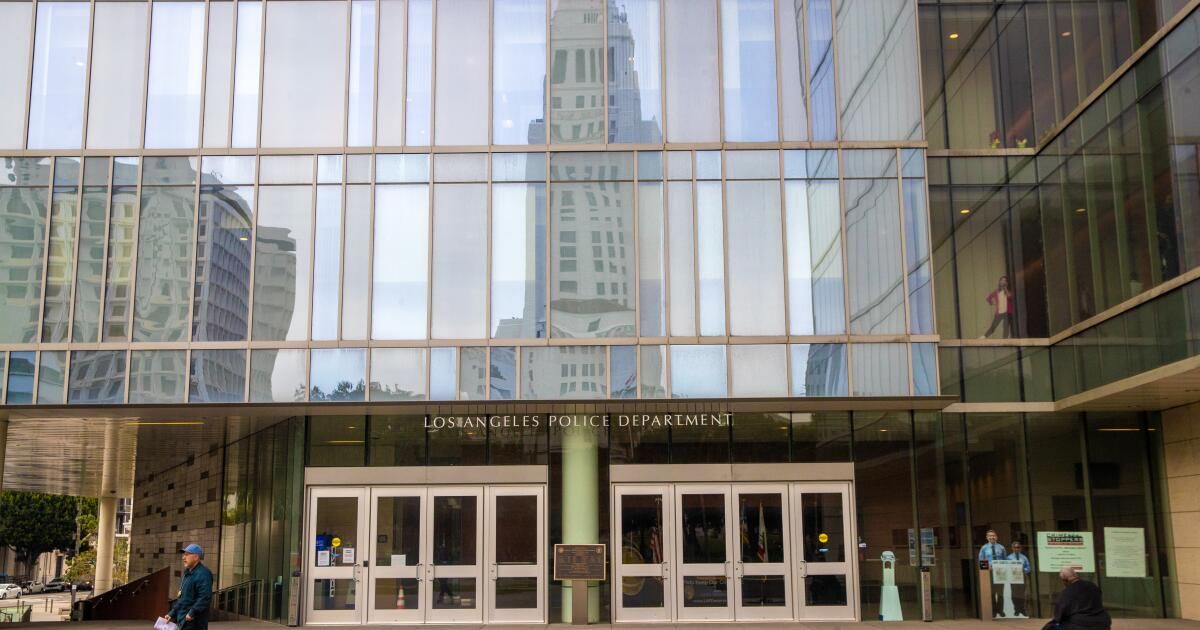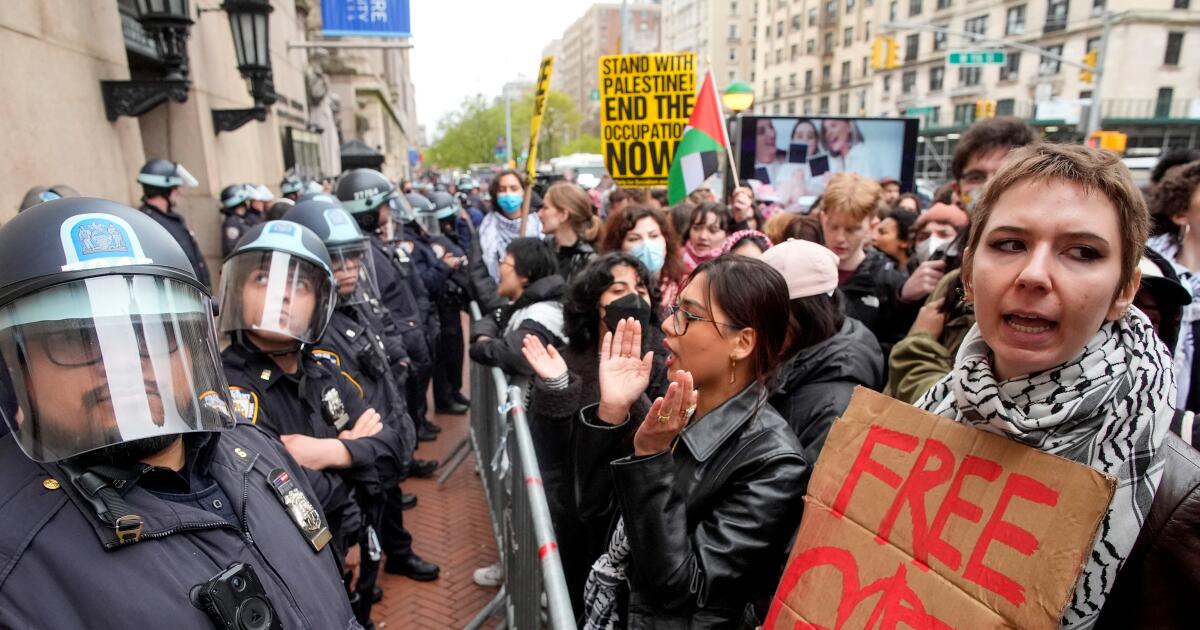If Los Angeles is going to improve its disciplinary process for police officer misconduct (as it should, so the chief can fire officers who don't meet standards), the City Council needs to get moving.
Voter approval is needed for any reform, and the council has just months to choose an alternative and craft language for the November ballot to undo the disastrous mistake it made several years ago.
That mistake was a 2017 ballot measure that undermines the police chief's ability to fire an officer who lies, steals, dangerously misuses a weapon or engages in other egregious conduct.
Charter Amendment C, as it was called, likely misled voters into believing they were tightening police discipline by allowing Boards of Rights to be composed of three civilians, instead of just one civilian and two police officers. They may have thought civilians would be harsher on police officers accused of wrongdoing. But they had it the other way around.
The results have been predictable. Officers accused of misconduct almost always elect all-civilian boards, routinely thwarting the chief's attempt to fire them.
The officers who should have been shown the door remain with the department, receiving full salary and benefits. But they cannot be assigned to patrol because they have been proven to be unreliable. They cannot take the witness stand because they would have little credibility with juries, so they cannot even file public complaints, because their reports could be challenged in court for having been handled by officers with a history of dishonesty or other misconduct. Currently, the LAPD has about 70 people in limbo, delivering documents or doing other jobs that should be done by less expensive civilian employees.
The Board of Rights is included in the city charter and can only be changed with voter support. What changes should the council ask you to make?
One option is to return to disciplinary panels made up of two police command staff and a single civilian. But rank-and-file police officers believe that higher-ranking officers side with the chief too easily to curry favor and advance their careers. Officers, like the chief and the public, need a disciplinary system that they consider impartial.
Another possibility is to change the composition of the group from which civilians are assigned to the Boards of Rights, so that each board is more like a jury. The current group is largely made up of professional attorneys and hearing officers who may tend to view the accused officers as criminal defendants with the same level of constitutional rights. Group members who might be more skeptical of officials say they are often excluded from meetings. Armed, sworn officers work in a chain of command, and while they deserve due process, they should be held to higher standards than accused criminals who could lose their freedom or their lives, not just their badges.
The council could also choose to bolster resources for the department's advocates, who take on the role of prosecutors in Board of Rights proceedings. They are often outmatched by the top defense attorneys the officers union hires to defend accused members.
City leaders could follow the lead of Los Angeles County, which allows the sheriff to fire deputies directly without seeking approval from a disciplinary panel. Fired deputies can appeal to a civil service commission to request reinstatement. Observers differ on whether there is a significant difference between the appeal coming first, as the city does, or the dismissal.
Or it could do something even broader, like follow the lead of other cities that have civilian review boards that conduct their own investigations, or combine the functions of the Boards of Rights and the Los Angeles Police Commission.
But we don't think any of those options make sense. At this point, it seems unlikely that the council will be able to identify the appropriate disciplinary process on its own. Council members have been at this for decades, but all they have done is weaken discipline when the public wanted it strengthened.
The best solution is for the council to put on the November ballot a measure that will completely remove the Board of Rights language from the charter so that the police discipline system can be reviewed and updated more regularly without the expense of repeatedly sending to voters something that they do not understand or that is intended to deceive them.
The measure would create a panel of experts to review the process approximately every five years and make recommendations for improvements based on best practices in law enforcement departments across the country. The council would still have the final say on recommended changes, such as the composition of the boards, the groups from which members are selected and who selects them. But instead of taking years to implement, updates would happen much more quickly.
Of course, speed is not the council's forte. Mayor Karen Bass, city attorney. Hydee Feldstein Soto and some council members have said they want to undo Measure C. That's a hopeful sign. City leaders risk ratifying the 2017 mistake for at least another two years if they don't do the work to get something done for the November vote.












